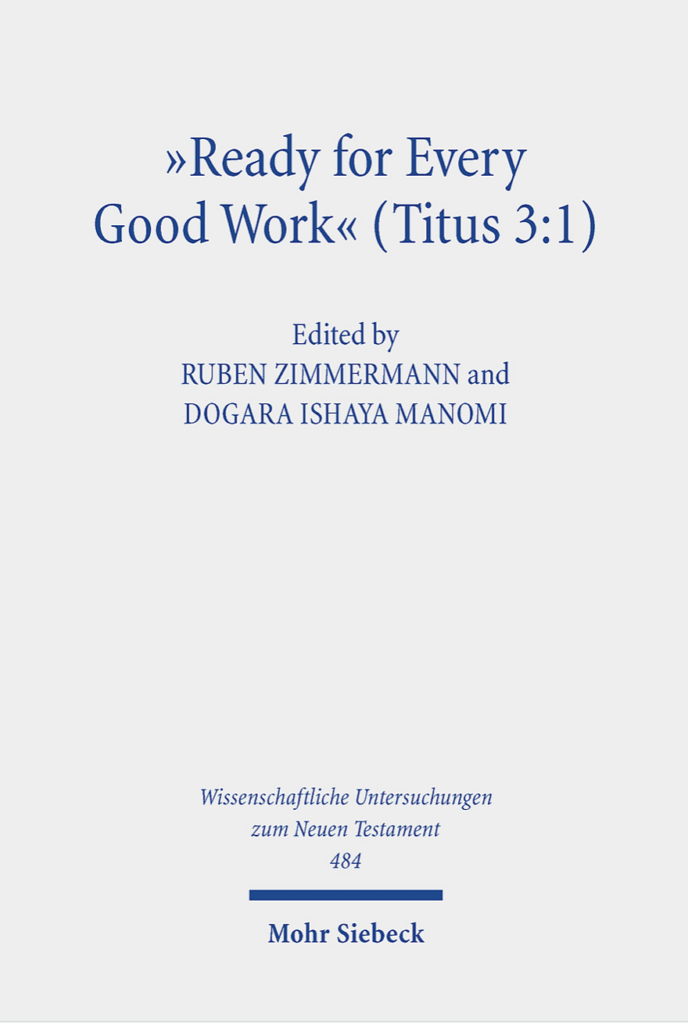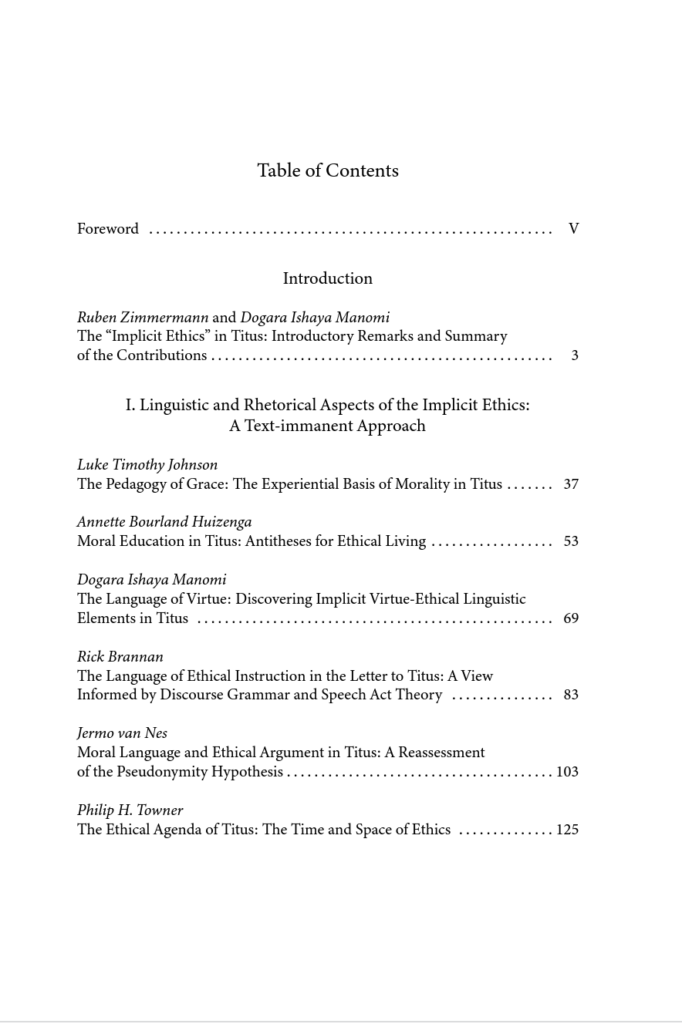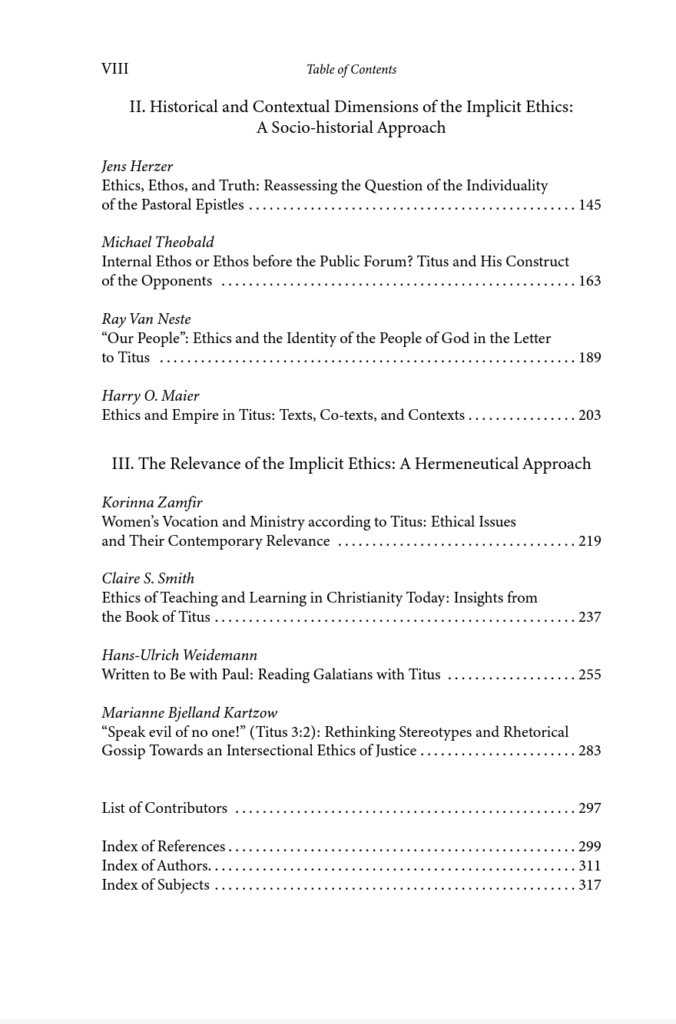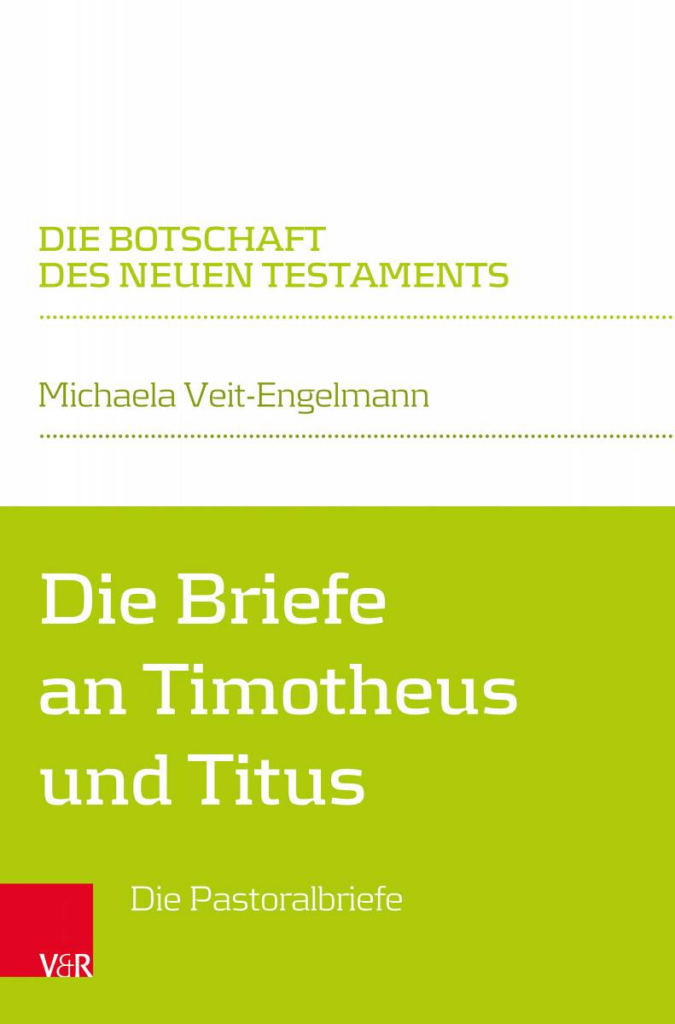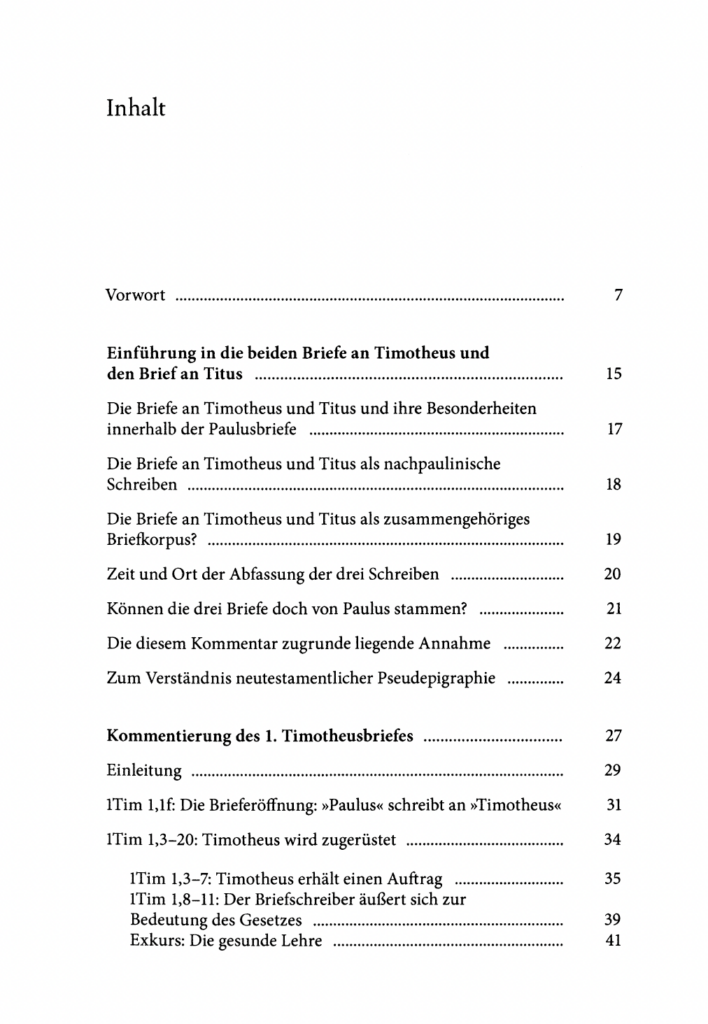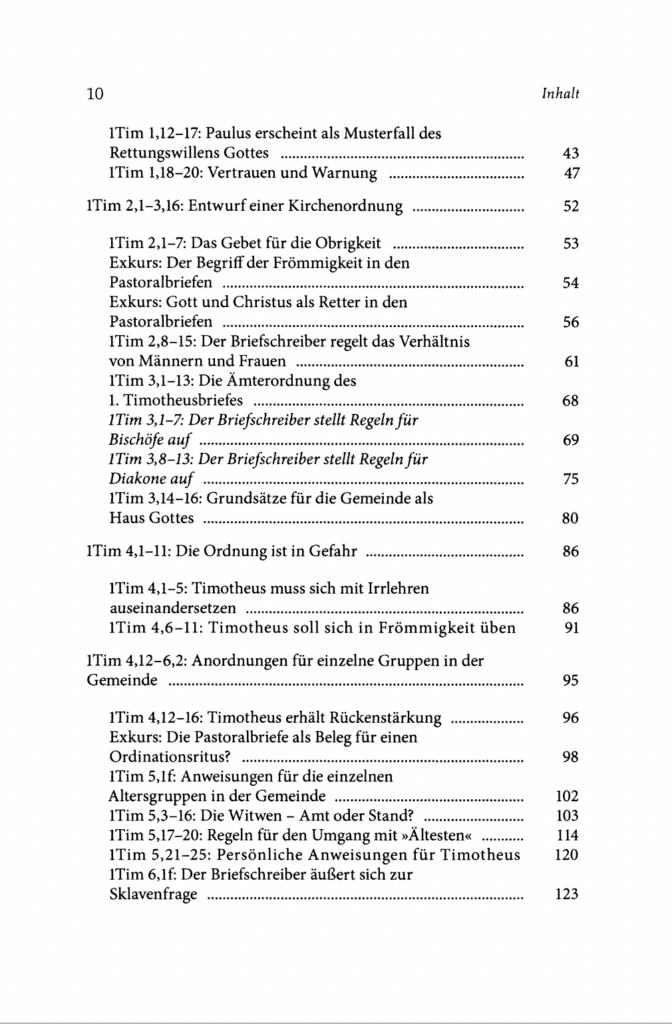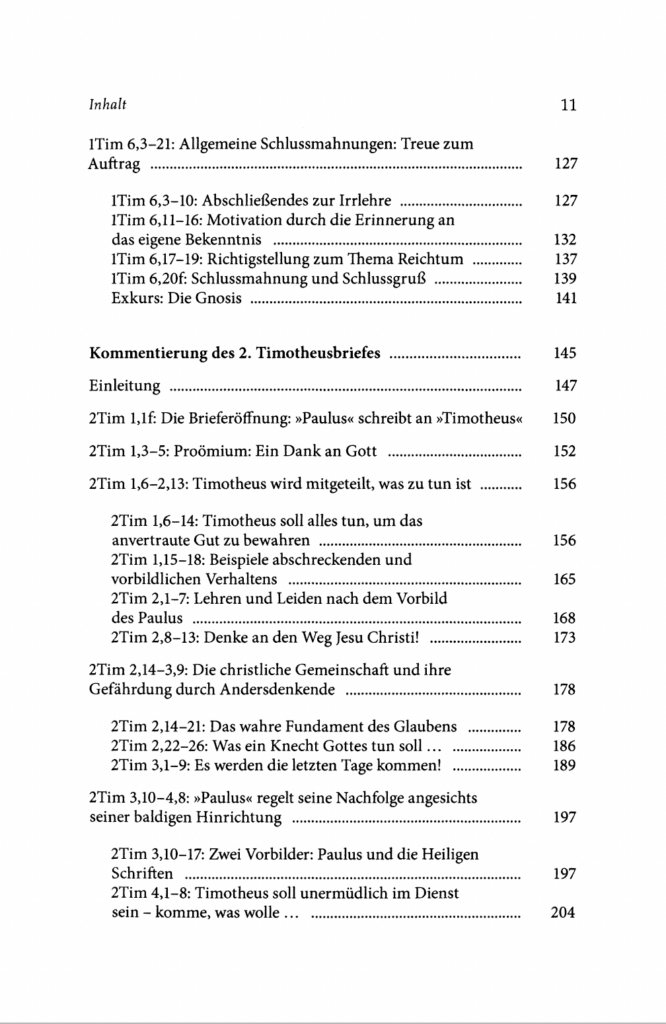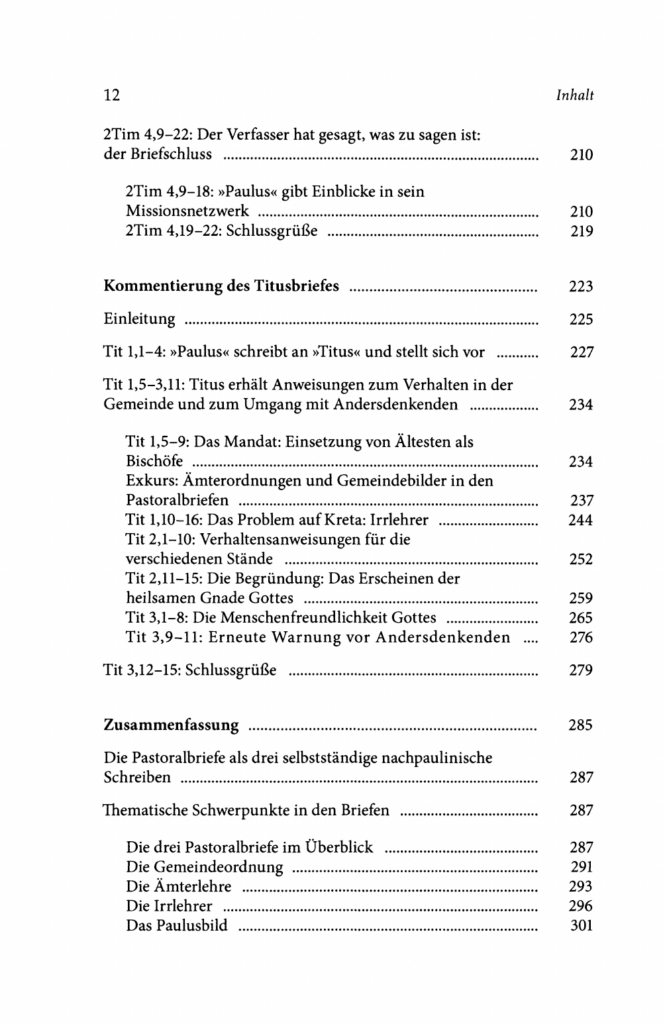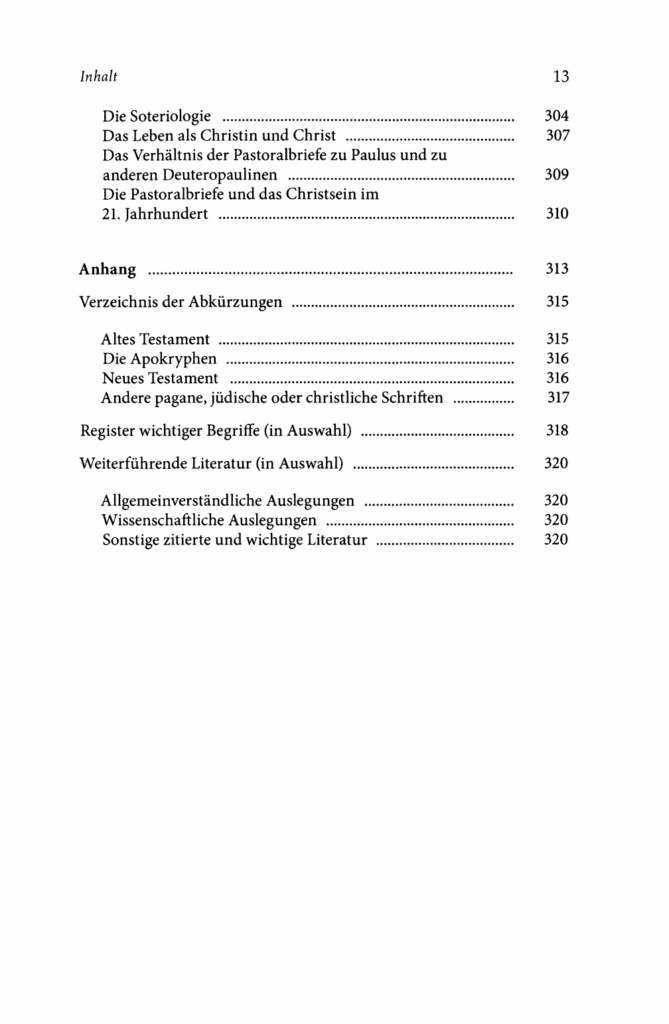I have not seen a new article by Giuseppe De Virgilio for some time, but noticed this one tonight:
De Virgilio, Giuseppe. “‘In attesa della beata speranza’ (Tt 2,13): L’esercizio della speranza nelle Lettere a Timoteo e Tito [‘Waiting for the blessed hope’ (Tit 2:13): The exercise of hope in the Letters to Timothy and Titus].” Ricerche storico-bibliche 34.1–2 (2022): 319–29.
Abstract: “The exercise of hope is examined in the Letters to Timothy and Titus, as a development of the eschatological theme in the Pauline correspondence. The exercise of hope expressed through the use of elpis (1Tm 1,1; Tt 1,2; 2,13; 3,7) and elpizô (1Tm 3,14; 4,10; 5,5; 6,17) is part of the broader vision that characterizes the development of the Pauline tradition. The vital environment of the Pastoral Letters witnesses a climate of active expectation and hope, characterized by long-distance dialogue between the apostle, his faithful interlocutors and their respective Christian communities. In reviewing the attestations of elpis / elpizô and the use of hypomonê / hyomenô and makrothymia in the pastoral corpus, three peculiar aspects of the theme are focused on: a) hope as a sign of the industriousness of the present time and fidelity in its duration; b) the didactic and ethical emphasis on the exercise of hope; c) the pedagogical connotation of hope for the formation of the pastor between the apousía–parousía of Paul.”
De Virgilio is on the faculty of a Roman Catholic institution in Rome, the Pontificia Università della Santa Croce, and has published a great deal of specialist literature on the Pastorals over the years:
“2 Tm 3,14–17: l’identità delle Scrittura ispirata nella prospettiva teologica delle Lettere Pastorali.” Pages 208‒226 in La Sacra Scrittura anima della teologia: Atti del IV Simposio Internazionale della Facoltà Teologia. Edited by M. Tábet. Vatican City: LEV, 1999.
“Aspetti e profili della solidarietà nelle Lettere Pastorali.” Pages 195–222 in Il deposito della fede: Timoteo e Tito. Edited by Giuseppe De Virgilio. Supplementi alla Rivista Biblica 34. Bologna: Dehoniane, 1998.
“L’attesa del tempo e l’esercizio della speranza nelle Pastorali.” Parole di Vita 57.5 (2012): 16–21.
“La categoria paolina della speranza e il suo uso nelle Lettere Pastorali.” Pages 129‒61 in Speranza umana e speranza escatologica. Edited by R. Altobelli and S. Privitera. Teologia morale 11. Cinisello Balsamo (Milano): San Paolo, 2004.
“Chiesa e ministeri nelle Lettere Pastorali.” Pages 107‒34 in Chiesa e ministeri in Paolo. Edited by Giuseppe De Virgilio. Bologna: Dehoniane, 2003.
“‘Dio vuole che tutti gli uomini siano salvi’ (1Tm 2,4)”. Parola Spirito e Vita 1 (2014): 167–182.
“La figura di Paolo nelle Lettere Pastorali.” Parole di Vita 57.4 (2012): 44–50.
“Helpis-helpízein [ἑλπις-ἑλπιζειν] nel corpus pastorale.” Pages 65‒81 in Planus: Quaderno di studi a cura di Giovanni Giorgio (Istituto Teologico Abruzzese-Molisano). Pescara: Sigraf, 2006.
“L’impiego di pistéuein – pistis nelle Lettere a Timoteo e Tito.” Firmana 21.1 (2012): 71‒84.
“‘In attesa della beata speranza’ (Tt 2,13): L’esercizio della speranza nelle Lettere a Timoteo e Tito.” Ricerche storico-bibliche 34.1–2 (2022): 319–29.
“Ispirazione ed efficacia della scrittura in 2Tm 3,14–17: In occasione del XXV anno della promulgazione della Costituzione Dogmatica Dei Verbum.” Rivista biblica italiana 38 (1990): 485–94.
Lettere a Timoteo, Lettera a Tito. Nuovo Testamento: Commento esegetico e spirituale. Rome: Città nuova, 2017.
“Le Lettere Pastorali: profili etico-morali in dialogo con l’ambiente ellenistico.” Bibbia e oriente 48.4 (2006): 223–48.
“Il ministero del pastore nella Chiesa (1Tm 3‒5).” Parole di Vita 5 (2012): 22‒27.
“Πᾶν κτίσμα θεοῦ καλόν (1Tm 4,4). La positività della creazione e la sua dimensione salvifica nelle Lettere Pastorali.” Pages 361–76 in Creation and Salvation in the Bible. Edited by M. V. Fabbri and M. Tábet. Rome: EDUSC, 2009.
“Ravviva il dono di Dio.” Parole di Vita 5 (2012).
Ravviva il dono di Dio: Una lettura vocazionale di 2Tm 1,1-18. Rome: Rogate, 2018.
“San Paolo ‘Educatore’: Aspetti e motivi pedagogici nell’epistolario paolino.” Rassegna di Teologia 53 (2012): 357–82. (Note “6. L’accentuazione ‘pedagogica’ nelle comunità delle Lettere Pastorali.”)
